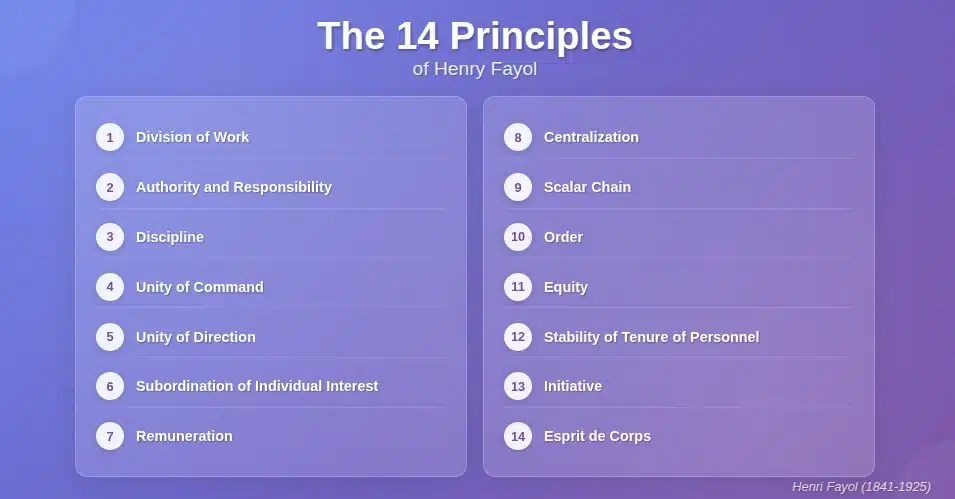Welcome to our blog on project manager interview questions, where we'll dive into the key aspects of interviewing for the role of a project manager. Whether you're a seasoned project management professional or just starting your journey in this field, the interview process can be both exciting and nerve-wracking. But fear not! We're here to help you prepare effectively by covering the essential project manager interview questions (PM interview questions) that you might encounter during your job hunt.
Project managers play a critical role in the success of any organization. They are the orchestrators of projects, responsible for planning, executing, monitoring, and delivering them within scope, time, and budget constraints. To excel in this role, you need a combination of technical skills, leadership abilities, and excellent communication.
In this blog, we'll explore common project management interview questions that hiring managers often use to assess candidates' suitability for the position. We'll provide insights into how to answer them effectively, share tips for demonstrating your expertise, and offer guidance on what employers are looking for in a project manager.
Whether you're looking to break into the field of project management or are a seasoned pro seeking your next career move, read on to equip yourself with the knowledge and confidence needed to ace your project manager interview. Let's get started!
Preparing for a project manager interview can be a rigorous process, but with the right strategies and practice, you can increase your chances of success.
Top 12 tips to help you prepare for project manager interview:
- Understand the Job Description:
- Review the job description thoroughly to understand the specific requirements and responsibilities of the role. Tailor your responses to align with what the employer is looking for.
- Research the Company:
- Familiarize yourself with the company's culture, values, industry, and recent projects. This knowledge will help you demonstrate your genuine interest in the organization.
- Highlight Your Experience:
- Prepare concise and impactful stories that showcase your project management experience. Use the STAR (Situation, Task, Action, Result) method to structure your responses.
- Emphasize Leadership Skills:
- Project managers need strong leadership skills. Be prepared to discuss times when you've led teams, resolved conflicts, and motivated individuals to achieve common goals.
- Technical Knowledge:
- Brush up on project management methodologies, tools, and software. Expect questions about your experience with Agile, Scrum, Waterfall, or other methodologies.
- Communication Skills:
- Project managers must be effective communicators. Highlight your ability to convey complex information clearly to stakeholders, team members, and clients.
- Risk Management:
- Be ready to discuss your approach to identifying, assessing, and mitigating risks in projects. Provide examples of how you've managed unexpected challenges.
- Conflict Resolution:
- Project managers often deal with conflicts. Share experiences where you successfully resolved conflicts within your team or with stakeholders.
- Time and Resource Management:
- Project managers must manage schedules and resources efficiently. Discuss your strategies for optimizing resource allocation and meeting deadlines.
- Stakeholder Engagement:
- Explain how you engage and manage relationships with project stakeholders, including clients, team members, and executives.
- Adaptability:
- Show your ability to adapt to changing project requirements and priorities. Share examples of how you've adjusted strategies to ensure project success.
- Ask Questions:
- Prepare thoughtful questions to ask the interviewer. This demonstrates your interest in the role and helps you assess if the company is the right fit for you.
Let us take a look at some more interview questions that will help you build a successful project management career.
Project Manager Interview Questions
Here is a list of commonly asked project manager interview questions. You can use this list to prepare and gather your thoughts regarding your past work experience.
1. Can you talk about the last project you worked on?
The recruiter may want to understand more about what kind of projects you have previously worked on, what you are used to, what approach you may have used in the past, how many people were in your team, and more such details. Here, you can talk about the important aspects of a project such as how to achieve the overall goal within the time frame. Talking about metrics or how you may have added value to the overall project might be a good idea here.
2. What was your most successful project?
This question gives you the opportunity to talk about a project where you were able to achieve success. There can be various reasons why a project was successful and can be measured based on the end goal, budget, deadlines, and more. You can demonstrate your strengths, don't undersell yourself. This is an opportunity to showcase what you have worked on and a project you are proud of. Talk about the key elements that made the project a success.
3. How do you prioritize the tasks in a project?
One of the most important things to do is to prioritize the tasks. It helps in successfully completing the projects within the deadline. To prioritize the tasks in a project, you can follow the points mentioned below:
- Make a list of the tasks and responsibilities
- Differentiate between urgent and important tasks
- Assess the importance of each task
- Order the tasks by valued efforts
- Stay flexible and ready to adapt
- Know precisely when to say NO
Talk about how you would prioritize a set of tasks in the most effective manner in a given project.
4. What is your leadership style?
Every Project Manager must possess leadership skills. The basic characteristics of leadership are motivating, guiding, directing, and managing the team. Leaders bring the best out of the members of their team. They motivate others to create, innovate, and perform. Take this opportunity to talk about your leadership style. There are different leadership styles such as autocratic, democratic, coaching, bureaucratic, and more. Tell the recruiter about your management style and why it is a good way to manage a team.
Also Read: Leadership Interview Questions and Answers
5. How do you handle conflict within your team?
Conflicts are inevitable, but it does not necessarily have to be destructive. The problem is not that the conflict exists, but how you choose to handle it. When approached positively, conflict promotes diverse ideas. Every conflict is unique, so there is no one-size-fits-all approach to handling them all. There are several aspects that go into determining which strategy is ideal for settling conflicts.
To properly respond to this question, assure the interviewer that you are a good listener who can accept conflicting viewpoints without being offended. Start by having an informal meeting with each team member to settle disputes within the team. Rather than making assumptions, it is preferable to listen to people's concerns in a secure environment. Find the source of the conflict and work to resolve it while keeping everyone's best interests in mind.
6. What are the steps to consider when your project is off track?
Once you have determined that your project is going to exceed the limit of budget, time, or fails to meet the goals, you need to execute the following steps.
- Do a root cause analysis
- Return to the original plan or goal
- Engage in resource optimization
- Communicate with stakeholders and clients
To answer this question, you can give an example of a past experience where you were handling a project and things started to go off track. You use the opportunity to talk about how you along with your team were able to bring the project back on track eventually.
7. What steps will you take if you find that one of the project tasks requires more time than you anticipated?
Accurate time estimates are required to establish realistic deadlines, avoid schedule overruns and minimize delays. However, it is not always so easy to predict the duration of project tasks in advance. Even if you have all the information necessary to get a reliable estimate, you may make a mistake, and your own mind can play tricks on you and incline you towards making a wrong decision. Such an unconscious tendency to make wrong time estimates is known as the planning fallacy, which turns out to be the primary reason why we fail to meet deadlines ever so often.
To avoid the planning fallacy, other experts should be included in the estimating process. Inviting people to participate in project time estimation allows you to consider a variety of challenges and possibilities that you wouldn't be able to find on your own. Also, you need reliable and high-quality data to make correct time estimations.
8. How do you manage your team while working from home?
It is challenging enough to collaborate and work when everyone is in the same building. Managing people while you and your team work remotely, on the other hand, is a whole different ballgame. Project managers need to be aware of how working from home may create feelings of isolation among the team members. First of all, it’s critical to understand the common difficulties, from isolation to distractions to lack of face-to-face supervision.
Then managers can support remote workers with regular meetings, opportunities for social interactions, and ongoing encouragement and emotional support. Especially in the context of an abrupt change to remote work, it is crucial for managers to acknowledge stress, listen to employees’ concerns, and empathize with their problems.
9. How will you identify stakeholders and why do you need to know more about them?
Identifying stakeholders starts with the beginning of a project. You need to know about them because it is significant for the success of the projects. The reason is simple; projects are undertaken to fulfil their objectives as well as expectations.
10. What is stakeholder analysis and Power-Interest Grid used for?
Stakeholder analysis is the process of preparing a list of all the possible stakeholders who are going to be associated with the project in some way. A power-interest grid helps in categorizing stakeholders on the basis of their importance and impact. This two help in listing the positions of the stakeholders in the project to develop all the relevant stakeholder engagement strategies for various groups.
11. What is the difference between Project, Program, and Portfolio?
Project - It is an effort to come up with a unique solution or product. It is temporary in nature and has a start and endpoint which are defined. The main focus is on detailed delivery.
Program – It is a set of interrelated projects which are managed together. Just like a project, it is also temporary in nature but lasts longer. The program follows high-level plans that are backed up by many detailed plans.
Portfolio – It is a bunch of projects as well as operations that are managed by one group so that the strategic goal can be achieved. Unlike project and program, it is permanent in nature and aligned with the strategic planning.
12. What are the skills that a Project Manager should possess?
The significant skills that should be possessed by a Project manager are:
- Personal Organization
- Leadership
- Communication
- Team Management
- Negotiation Power
- Risk Management
13. How to start your job as a new Project Manager?
Things that you need to take care of to start a job as a new Project Manager are:
- Listen, observe and learn
- Understand the needs and wants of your clients
- Know your team members and their personalities
- Take the opportunity as well as initiative to learn some new skills
- Help out around the workplace
- Try to master the tools that are mostly used by your company
14. What are the processes and process groups in the project management framework?
A process is a certain way of carrying out the tasks that are involved in the completion of a project successfully. In a project management framework, there are around 49 processes. A process group is a collection of processes that are applicable in several stages of the project.
15. What are the knowledge areas and how relevant are they in a project?
Knowledge areas are the technical subject matter which is important for successful project management. The 49 processes are part of the knowledge areas where they are grouped on the basis of their commonalities. The ten knowledge areas of the project management framework are:
- Project Communications Management
- Project Integration Management
- Project Scope Management
- Project Cost Management
- Project Schedule Management
- Project Quality Management
- Project Procurement Management
- Project Resource Management
- Project Risk Management
- Project Stakeholder Management
16. How should you handle a difficult stakeholder involved in your project?
Here are some points to remember to handle a difficult stakeholder in your project:
- Accept their authority without arguing
- Do not show any negative emotion
- Try to understand their problem
- You can ask for their advice and listen to them
- Be honest with the decisions you make
- Try to praise them whenever possible and try to create the connection
- Enhance your communication
17. What is RAID in Project Management?
RAID is an acronym for Risk, Assumptions, Issue, and Dependencies, which are important factors in the success or failure of the project.
18. Which is your preferred project management methodology in your projects?
A Project Manager must wear many hats and apply various management techniques and methodologies to ensure that the project is successful. To select the apt methodology for a project, you need to consider various factors, including the goal of the project, stakeholders, risks, cost, resources, complexity, and constraints.
19. What are the tools usually used for improving the process activities?
The commonly used tools in the industry include:
- Comparing and Baselining a Process
- Flow-charting
- Value-Stream Mapping
- Cause and Effect Analysis
- Hypothesis Testing
20. How to manage under-performing team members?
To ensure that all the team members are working to their optimum potential, we can take the following steps:
- Create performance guidelines for all roles
- Identify and coach poorly performing team members
- Raise the skill level of the team members with simulations, exercises, and training initiatives
- Appreciate the well-performing members publicly
- For severely under-performing team members, create improvement plans
- Provide enough in-the-moment feedback to address performance gaps.
21. What are the stages of forming a team?
The five stages of team development were created by Bruce Tucman, and it sheds light on the process of how a team comes together and all the way to the dispersal of the team for a project. The various stages are Forming, Storming, Norming, Performing, and Adjourning.
22. Being a project manager how will you gain your team’s agreement for results?
To build agreement for results, some of the useful techniques are:
- Creating SMART objectives
- Provide real-time feedback and periodic reviews
- Establish RACI
- Harness collaborative approach
- Set clear expectations early and often.
23. Explain Ishikawa/ Fishbone diagrams.
Ishikawa or Fishbone diagram is used for carrying out a root cause analysis for a particular problem. The main benefit of this tool is the clear visualization and its utility in analyzing complex problems which may have hidden factors contributing to them. This helps the project manager look past the symptoms and address the underlying causes.
24. What is the process of calculating the three-point estimating method?
The two ways through which three-point estimation can be calculated are:
Triangular Distribution E = (P+M+O)/3
Beta or PERT Distribution
E = (P+4M+O)/6
where, P = pessimist, O = Optimist, M = most likely.25. What is Work Breakdown Structure (WBD)?
Work Breakdown Structure (WBD) is used to define the work activities, essential for the project, and the various sub-activities that may be instrumental in the completion of each activity. The structure of WBD follows a hierarchical pattern with the main activities branched off in sub-activities, housed under each parent, with a top-down or bottom-up approach.
26. What is the difference between risk and issues?
This is one of the frequently asked project manager interview questions.
The differences between risks and issues can be as follows:
- Risks present the future possibilities that may arise in a project while the issues are based on the present status of the project.
- Risks can be positive in nature as well as negative, while the issues are predominantly negative.
- Risk documentation is carried out in the Risk Register while the issues are documented in the Issue Register.
27. What is the difference between Risk Impact and Risk Probability?
Risk impact denotes the cost of the risk that can happen in a project while Risk Probability refers to the likelihood of the risk occurring project.
28. Why is it important for a project manager to be proactive?
Being proactive enables a project manager to estimate the future risk and issues that can occur in a project. This allows them to formulate workarounds and take preventive actions to ensure that the impact of the issues and risks are minimized.
29. Which communication style do you prefer to use in your projects?
This is one of the frequently asked project manager interview questions.
As a project manager, you may need to shift your style of communication to suit the needs of the project and your team members. Based on this, you can choose between the fours styles of communication which are
- Analytical
- Intuitive
- Functional
- Personal.
30. What is the Pareto principle analysis?
The Pareto principle is also known as the 80/20 principle. 80% of the results originate from 20% of the efforts. This analysis helps in prioritizing the tasks based on their impact instead of their urgency.
31. What is the triple constraint triangle in project management?
It is a combination of three components that are the most important restrictions on the projects. The three constraints are time, cost, and scope.
32. What are the major types of risks that may be encountered in a project?
This is one of the frequently asked project manager interview questions.
The major types of risks that you may encounter in a project are:
- Market Risk
- Schedule Risk
- Cost Risk
- Resource Risk
- Performance Risk
- Technology Risk
- Governance Risk
- Legal Risk
- External Risk
- Strategic Risk
- Operational Risk
33. What should be done if the customers are not pleased with the quality or results of the product by the end of the project?
Tips to handle a dissatisfied customer:
- You must show and make the customers feel that you value them
- You must try to understand why they are not satisfied
- You must try to figure out the kind of modifications they want
- Try to Implement the modifications if there is any scope
- If it is not possible, you can try to convince and explain to the customer
34. What is budget management?
The practice of monitoring and tracking revenue and expenses is known as budgetary management. Companies often have budgets for individual departments as well as an overall company budget
Budgets often have four aspects:
- Revenue,
- Operating expenses,
- Capital expenses,
- Employee Expenses.
There are two main responsibilities for successful budgetary management:
- Budget preparation:
Creating a budget include calculating expenses, establishing spending restrictions, and establishing a tracking system.
- Budget tracking:
Budget tracking is keeping a running account of all spending and income in order to reconcile the department, real cash flow with its costs.
35. What is a requirement traceability matrix? What is its importance?
A requirements traceability matrix is a document that shows how requirements and other artefacts are related. It is used to demonstrate that requirements have been met.
Requirements traceability is important to effectively manage your requirements of:
- Meeting Goals
- Running the Right Tests
- Making Decisions
- Managing Projects
36. How can an individual manage a difficult project? What are the steps taken to tackle it?
Despite the availability of numerous resources, project management tools, training materials, and adaptable techniques, businesses continue to waste millions of dollars annually and struggle to address project management challenges and issues.
Steps:
- Defining the Goals And Objectives
- Keeping Teams on The Same Page
- Have proper accountability
- Proper team communication
37. What is gold plating? How can you avoid it?
Gold plating is the technique of altering a project scope beyond what was originally agreed upon. The process of gold plating takes time. Feature creep, which involves adding enhancements to a project at the client request, is quite similar to this approach.
- Establish a rule: Never allow team members to add more features without first obtaining client approval and conducting a PMP-approved review of how they will influence the project.
- Follow PMP procedure: Determine what to do if team members believe more work is required outside of the scope of the initial project.
- Communicate and monitor: Keep the lines of communication open throughout the project and keep an eye on the work to avoid gold plating.
38. What is the difference between project monitoring and project controlling?
Monitoring is the process of gathering, collecting, and reporting project data that is relevant to the project manager and other stakeholders.
Control makes use of the data and information collected to bring real performance in line with the plan.
39. What is EVM or Earned Value Management and its use? How can it be implemented?
Earned value management (EVM) is a project management system that measures project performance by combining time, price, and scope.
It can be implemented by:
- Establish a project work breakdown structure
- Establish a project schedule
- Calculate and baseline Planned Revenue
- Track Earned Revenue and Actual Effort
- Track project performance and adjust Earned Revenue
40. What is the fast-tracking technique and the crashing technique? Which is better?
Fast Tracking
- To shorten the timeline, activities or phases are carried out in simultaneously
- Rework and risk are both increased as a result of this.
- Only when activities/phases may be overlapped to reduce project length does it work. Works exclusively for activities that require additional resources.
Crashing
- To condense the timeline, more resources are added to the activities or phases.
- Increases the expense of doing business, as well as the risk and cost of doing business.
- Only works for tasks when adding more resources will cut the time of the activity. It is dependent on the requirements. Fast-tracking is the greatest option if you can manage it. Because there is no additional charge for fast-tracking. Crashing, on the other hand, can assist pull timings in significantly in specific instances. For example, in construction projects, more employees can complete the wall sooner.
41. What are the steps taken for risk planning?
The 4 essential steps of the Risk Management Process are:
- Identify the risk
- Assess the risk
- Treat the risk
- Monitor and Report on the risk
42. What are time and material contracts?
This type of contract comes with aspects of both cost-reimbursable as well as fixed-price contracts. This contract is almost like the cost-reimbursable type arrangement where there is no absolute end.
43. What kind of bid documents would you use for procurement management and what kind of contract types should be used for engaging with contractors and suppliers?
This is one of the frequently asked project manager interview questions.
The bid documents that can be sued for procurement management include:
- Procurement Statement of Work (SOW)
- Request for Information (RFI)
- Invitation for Bid (IFB)
- Request for proposal (RFP)
- Invitation for Quote (IFQ)
- Purchase Order (PO)
The types of contracts used for engaging with contractors and suppliers are:
- Time and Materials Contract
- Fixed-Price Contract
- Cost Reimbursable Contract
44. How would you plan to tackle project execution?
The project manager has to work as a leader and collaborate with the project stakeholders, peers, sponsors to handle a project execution effectively. The project manager has to be excellent in communication as well as interpersonal skills.
45. What are the motivation theories and formal techniques to keep a team motivated?
A project manager needs to ensure that the entire team is constantly motivated. For the success of a project, the motivation theories are:
- McGregor’s Theory
- Maslow’s Theory
- Vroom’s Expectancy Theory
- Hertzberg’s Theory
- McClelland’s Theory
The project manager must know the fundamentals of these theories and be able to implement them for the team's success.
46. What are conflict management techniques to manage conflicts between stakeholders and team members?
This is one of the frequently asked project manager interview questions.
Conflicts take place in any project because of disagreements between team members and stakeholders. The Project manager must intervene in one such situation and resolve the issue.
Some conflict management techniques are:
- Problem-solving/collaborating
- Competing/Forcing
- Accommodating
- Avoiding/Withdrawing
- Reconciling/Compromising
47. What is the difference between trend analysis and variance analysis?
Variance analysis is the computing method of the difference or variance between the projected and the actual performance. Trend analysis is used to identify the emerging patterns in the course of the project, and it helps in course correction for the project.
48. What is the difference between corrective and preventive actions?
A preventive action is taken periodically to ensure that any and all possibilities of variance are taken care of beforehand so that the project deliverable cannot get impacted. The corrective measure, on the other hand, is taken once the variance has already occurred.
49. How should a project manager communicate a failure to his team?
This is one of the frequently asked project manager interview questions.
Once the failure has been confirmed by the project manager, he/she must call a meeting and clearly call out the result of the project as a failure. However, instead of finding someone to blame, the project manager must move on to the positives of the project. The learning outcomes that have come up as a result of the project should be discussed and noted down so that it provides valuable experience to the project team and the project manager for future projects.
50. How do you deal with changes to your project?
As we all operate in the VUCA world, it is common to see changes in most projects these days. That is why as a project manager, it is imperative to remain flexible and adaptable to deal with any changes brought in the project by the stakeholder. For this, a detailed change management plan must be executed.
51. How do you define an ideal project?
An ideal project is one that is:
- Relevant to the needs and expectations of people.
- Not too expensive depending on the costs and benefits involved.
- In line with one’s ethical principles.
52. How do you strategize your tasks?
You need to categorize your tasks into urgent and important tasks. Also, you need to figure out the tasks that you can delegate to someone else. Assigning the right task to the right person is crucial while delegating tasks to ensure the productivity of the team. While delegating responsibilities, make sure that the team members will be able to learn new skills and gain knowledge, which will prepare them for greater responsibilities in the future.
Here are a few tips to strategize your tasks more efficiently:
- Set clear expectations from the beginning.
- Review progress regularly using updates and feedback from the team.
- Set realistic deadlines for each task depending on the complexity of the task.
- Say ‘no’ when you don’t have the bandwidth for an additional task.
- Focus on just one task at a time.
- Make a checklist and keep track of important deadlines.
53. Tell us about the challenges you have faced while working on the projects? What steps did you take to tackle those challenges?
This is one of the frequently asked project manager interview questions.
Being a project manager is not simple. You have to wear many hats depending on the situation. Here are a few challenges that project managers face frequently-
- Lack of communication - Effective communication is critical to the project’s success. To ensure that all stakeholders are involved in the process, you must have timely and transparent communication techniques. To keep everyone up to date, project managers can use various collaboration and project management tools available in the market. Furthermore, having regular short meetings few times a week can help prevent miscommunication.
- Lack of clear goals - Clarity of goals is one of the most critical needs for a project's success. A project manager should develop SMART goals right at the outset of a project. Once you've established goals for your project team, make them clear to your teammates.
54. Can you tell an example of a failed project? Have you had any such experiences?
Many factors can contribute to project failure, including a lack of experience, poor communication skills, time constraints, unavailability of resources, and disputes with other team members or managers. Failures are not a problem if you end up learning something from that experience. In the example you provide, make sure that you highlight how you dealt with a difficult challenge and how you evaluated the setback.
The ideal method is to talk about a specific incident where you missed a deadline due to unanticipated or unplanned circumstances, but take personal responsibility for the failure and discuss what you're doing to prevent it from happening again.
55. What are the 4 main roles of a project manager?
Project managers play a multifaceted role in the successful execution of projects. While their responsibilities can vary depending on the organization and the project's nature, there are four main roles that project managers typically fulfill:
- Planning and Strategy Development:
- Project managers are responsible for developing a comprehensive project plan. This includes defining project objectives, scope, goals, and deliverables. They create a detailed project schedule, allocate resources, and establish budgets. This role involves setting the overall project strategy and ensuring alignment with the organization's goals.
- Execution and Project Oversight:
- During the execution phase, project managers lead their teams in carrying out the project plan. They coordinate activities, assign tasks, and monitor progress to ensure that the project stays on track. This role involves problem-solving, risk management, and adapting to changes as they arise.
- Stakeholder Communication and Management:
- Effective communication is crucial in project management. Project managers act as liaisons between the project team, stakeholders, clients, and other relevant parties. They ensure that all stakeholders are informed about project progress, changes, and any potential issues. Building and maintaining positive relationships with stakeholders is a key aspect of this role.
- Quality Assurance and Delivery:
- Project managers are responsible for ensuring that the project meets quality standards and delivers the intended results. They conduct quality checks, review deliverables, and make necessary adjustments to maintain quality throughout the project lifecycle. This role involves verifying that the project's outcomes align with the initial objectives and scope.
FAQs Related to Project Manager
Q: How do I prepare for a project manager interview?
A: To prepare for a project manager interview, you first need to have sound knowledge of your field and domain. If you want growth in the role of project management, you can even pursue a course on the subject.
Q: What are the five essential qualities of a project manager?
A: The five most important qualities of a project manager are Communication, Time Management, Leadership, Problem Solving, and Organizational Awareness.
Q: How do you demonstrate your project management skills in an interview?
A: To demonstrate your skills in an interview of project management, you have to emphasize your knowledge as well as experience, prove good communication skills, outline the organizational techniques, highlight customer satisfaction, and talk about various tools that are mostly used in project management.
Q: What are the 5 stages of project management?
A: The five stages of project management include Project Initiation, Project Planning, Project Execution, Project Monitoring & Controlling, and Project Closing.
Q: Who can be a project manager?
A: Anyone can be a project manager, provided the individual has a strong aptitude at organization/communication/planning. Project managers can excel in their careers if they are in the right environment with great mentors.
Q: What are the basic roles of project managers?
A: Project managers usually take care of the planning, procurement, execution, and closing of the projects. A project manager handles a project entirely.
These interview questions for the project manager will help you to apply for the role of project manager position. Preparing for these questions and adding your unique experience will bring you closer to your desired job position. If you wish to boost your chances, you can undergo a professionally designed course on project management offered by Great Learning.
Also Read Top 25 Common Interview Questions






